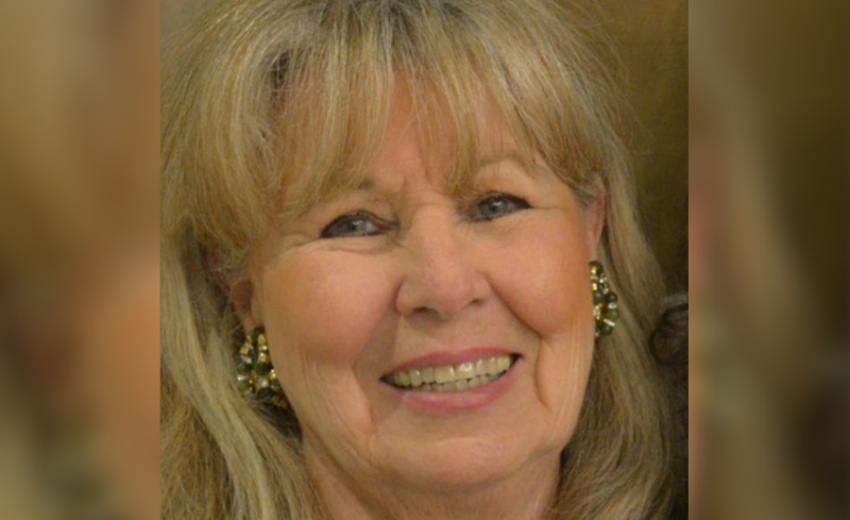
This article, written by Rabbi Miriam Jerris, is an excerpt from the Fall 2023 issue of Humanistic Judaism Magazine. Miriam Jerris, PhD is the rabbi of the Society for Humanistic Judaism, the IISHJ Associate Professor of Professional Development and the Managing Editor of Humanistic Judaism magazine.
In April 2022, I received a phone call from my aunt, Judith Rockert. I was in suburban Chicago at the International Institute for Secular Humanistic Judaism (IISHJ) Rabbinic and Officiant Ordination and the SHJ Board Meeting. She wanted to talk, but there were rules. I could not drive the car while we were talking, I needed to be by myself, and she needed fifteen to thirty minutes of my time. I was not going to be home for almost four days, and I hate delayed gratification. When I think back on that call, I don’t remember spending a lot of time ruminating. I was busy and with family and was annoyed with all the restrictions I was given. Her call would pass through my mind, and I didn’t begin to worry until I was driving home.
The news was not good. She had been diagnosed with stage two lung cancer a couple of years prior and she had been diagnosed with 100% calcification of her heart recently. She had contacted Medical Aid in Dying (MAID) in Canada to arrange a peaceful death at the end of June.
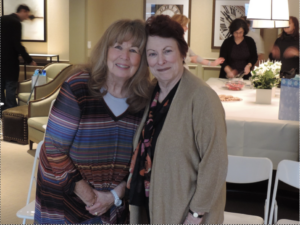
Miriam Jerris with her aunt, Judith Rockert
Judith was my mother’s baby sister. She was only twelve years older than I am. I was a flower girl at her wedding. She was, without a question, a force to be reckoned with. She lived large. She had a remarkable, almost unimaginable zest for living. She married at 18 and after having two children her husband was diagnosed with schizophrenia and he was institutionalized. His prognosis was not good, and she was advised by both lawyers and doctors to divorce him so he could return to the U.S. and get care close to his parents. This was the late 50’s in Canada. You didn’t just get divorced. She was a pragmatist. She packed up and “moved” to Reno where you could get a divorce, no questions asked, if you could prove six weeks of residency.
My aunt was an exceptionally beautiful woman. Between marriages she did some modeling. Once she was mistaken for Elizabeth Taylor as she exited an airplane. She was on the same plane with Elizabeth Taylor and Richard Burton and someone on the plane called ahead and alerted the press. Those traveling with the stars got wind of the leak, so Liz and Richard remained on the airplane. When my aunt disembarked, with her two small children, the cameras began to flash.
Her personality was magnetic. People were drawn to her and she to them. If Judith met someone in the grocery line, before they said goodbye, she would know an extraordinary amount of information about them. She asked many questions and because she was authentically and enthusiastically interested, strangers shared a staggering amount of personal information with her.
In her early thirties, Judith was flying on her own. When they fed her dinner, she put the salad dressing on the salad, and although aware she had allergies, she had no idea they were so severe, nor did she realize that there were poppy seeds in the salad dressing. She went into anaphylactic shock and luckily there was a doctor on board who had an EpiPen and that saved her life. Her condition took over her life and she became allergic to many things, but my aunt was an organizer and a planner, and she figured out how she could live and eat safely in many situations for eighty-four years. She was determined not to die from anaphylaxis.
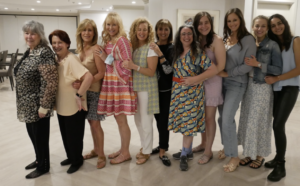
Three generations of Judith’s family
Some years after her first marriage ended, she met the man who would become her next husband. Together, they started a travel agency that catered primarily to companies that brought employees together from all over the world. I told you my aunt was organized, and this career was ideal for someone so capable of managing multiple details. She loved to travel and I’m sure I caught the bug from her. She found that she could travel safely on cruise ships. They would cook for her and protect her from the things she was allergic to.
When her son was in his early twenties, he attempted suicide. He was soon diagnosed with schizophrenia. For the next few decades, he was in and out of facilities. He regularly attempted suicide when he was not hospitalized. He was in unimaginable emotional pain and so was my aunt. Unless you knew her very well, you would not have known the extent of her suffering. She kept that information to herself and a few close confidants. One Passover she was at my house and received a phone call telling her that her son had finally been successful and ended his life. There were many examples in her life that cemented her belief that living with unbearable pain, physical or emotional, was not worth it, and definitely not something she wanted for herself.
Just before her fiftieth birthday, she divorced. She was unencumbered for the first time since she was a child. From then on, she explored – everything. She started exploring her own life and confronted some of the negative decisions she had made and why. She traveled where she could. She met interesting people. She took mind-expanding seminars. She made decisions that enhanced her life. All of her nieces vacationed with her at one time or another.
By now you know my aunt was organized. She was also extraordinarily controlling and self-centered. Because she was so genuinely interested in others these traits sometimes balanced her forcefulness. Her relationships were intense and sometimes conflicted.
She was particularly sensitive to those who needed her guidance and was an enormous presence in their lives. As many of us know, boundaries in relationships are important. She was oblivious to the fact that some people needed boundaries more than others. I was able to work through my issues with her and luckily had her love and loved her until the end.
The last ten years of her life, she suffered with disabling back pain and then the pandemic. Her relationships were important and significant, although the pain and the isolation combined was making it more and more difficult for her to find joy. She had watched friends and relatives suffer and that was not for her. She suffered in her life, and she did not want to suffer in her death. With her heart diagnosis, she had found her exit.
Judith shared a poem she wrote that clearly explained her position:
Tell me dear one
Tell me dear one, tell me wise one,
Is it the destiny of each generation
To watch the decay & destruction of
The souls of their
Forefathers, their Mothers & Fathers
Of their brothers and sisters
Of their Aunts, Uncles
And dear lifelong friends?
Is it their destiny
To observe this disintegration, as they age?
What if I don’t want to go there?
What if I don’t want MY loved ones to be witness to
MY deterioration
What if I want to leave before
The tearing apart of the person they once knew
and loved
Is no more
And all that remains is a little piece,
A little dribble,
A shell, a shadow of the original?
Is it OK to leave before
Their memory of the once vivid and vital
Valuable person
– J.R., 2022
My commitment to death with dignity is many decades old. The Humanist movement has taken the stand to support individuals in their right to die. In 1995, the Secular Humanistic Jewish movement’s leadership group affirmed the right of individuals to have assistance in dying. In 2013 the Society wrote resolutions supporting physician-assisted dying. (Links to these statements can be found on the additional resources page for this issue at: http://bit.ly/HJ-Fall2023).
Once I learned of Judith’s condition, my husband and I planned a trip to Toronto over Memorial Day to spend time with her. My daughter joined us. Judith’s daughter planned an opportunity for the immediate family to be together. She and her daughter created a book for her with photos and tributes. It was a time for crying and laughing and sharing. My favorite part of the evening was when we all gathered together and she sat in a chair and said, “Ask me anything!” It was deeply meaningful and full of authentic emotion.
We again gathered on the Saturday before her death and took turns reading the tributes that we and others had written. She was getting the goodbye party she always hoped for and dreamed of — the perfect
send-off. How wonderful it is to be able to celebrate someone you love so near to death when they are completely conscious and aware.
As the family reflected on those last months and days, we were aware of the bond between us growing even stronger.
The day of her death was Monday, June 27. I asked to be present. My aunt interviewed me to make sure I’d be okay seeing her die. I passed the test and was honored to bear witness. She died quickly and peacefully. Her face was relaxed.
Just recently MAID published their Annual Report. My aunt was interviewed. This is an excerpt from the interview:
I learned a long time ago. You can either live in fear or love, and I chose to live in love. And so, I’ve surrounded myself with incredibly loving people, bright people, consciousness-raising people. I understand what I do and why I do it…
I don’t want chemo. I don’t want radiation. I don’t want anything. Let me die peacefully. I’ve had the most incredible life. I have had adventures, wonderful people coming and going, and I have no regrets at all. None, I’m ready.
For years, my calendar was empty. I never went out. I never saw anybody, like everybody else during COVID. But now, it is just incredible… I’m just getting so much nourishment. I said I really wanted the last days of my life to be escalating bliss, and I am getting it. I am overflowing. It’s just yummy.
And that was exactly what I observed – so much love, so much authenticity and so much dignity.
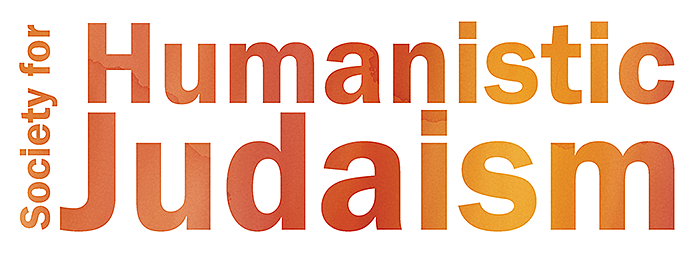
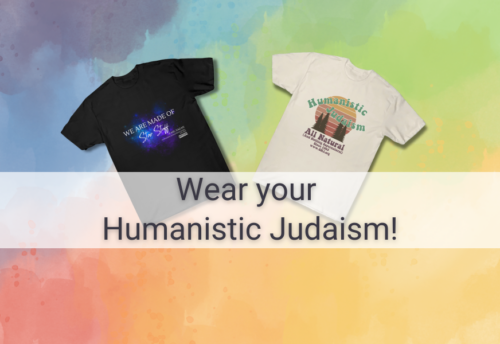
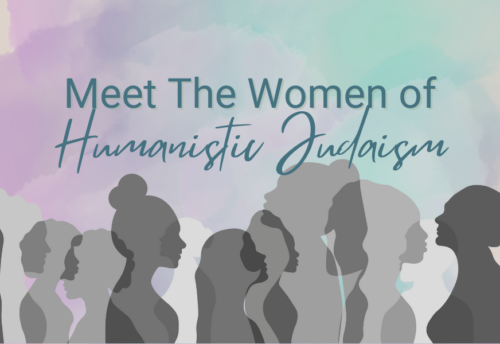
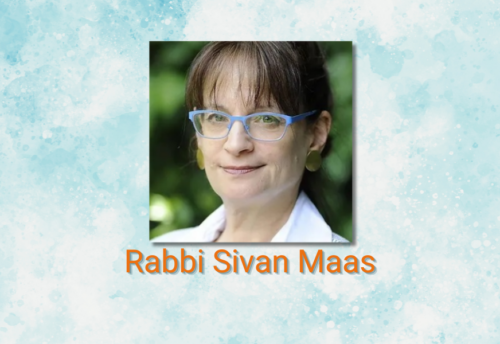
How wonderful a life and coming to the end your aunt had and how fortunate you were to know her and be near her in her passing. May her memory be a blessing.
Thank you so much for your kindness. Good memories. Miriam